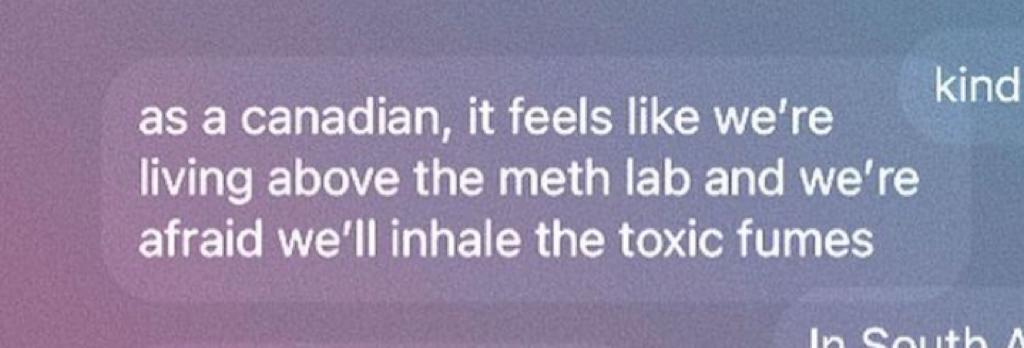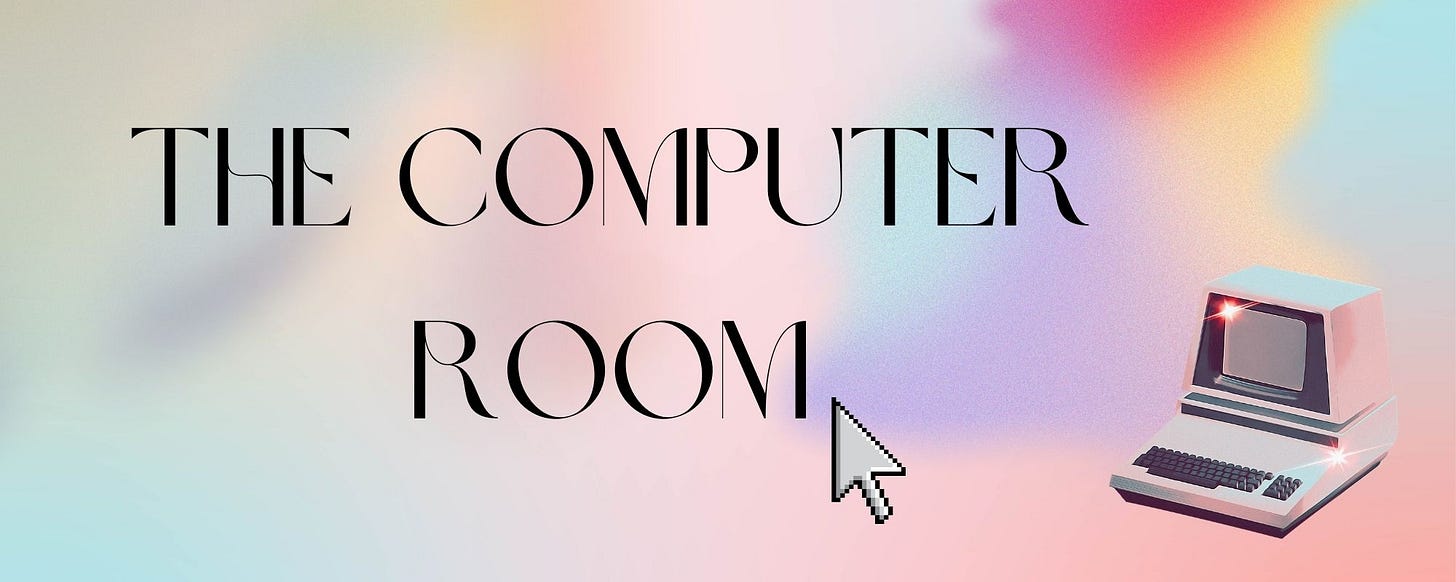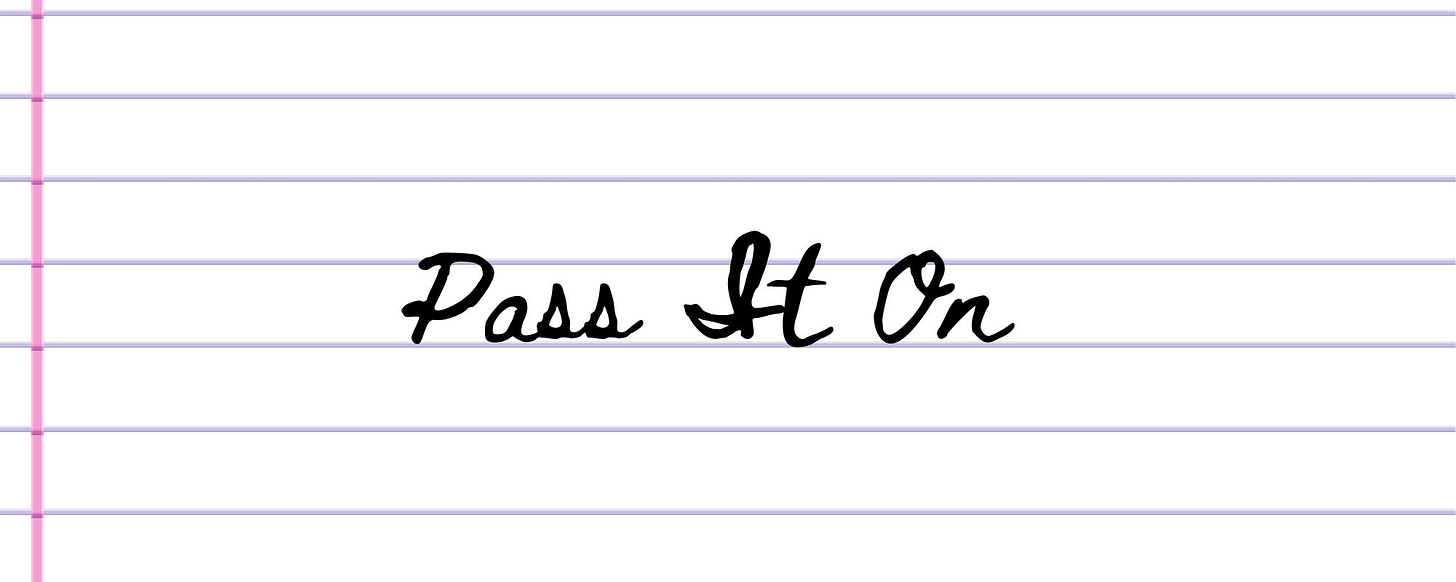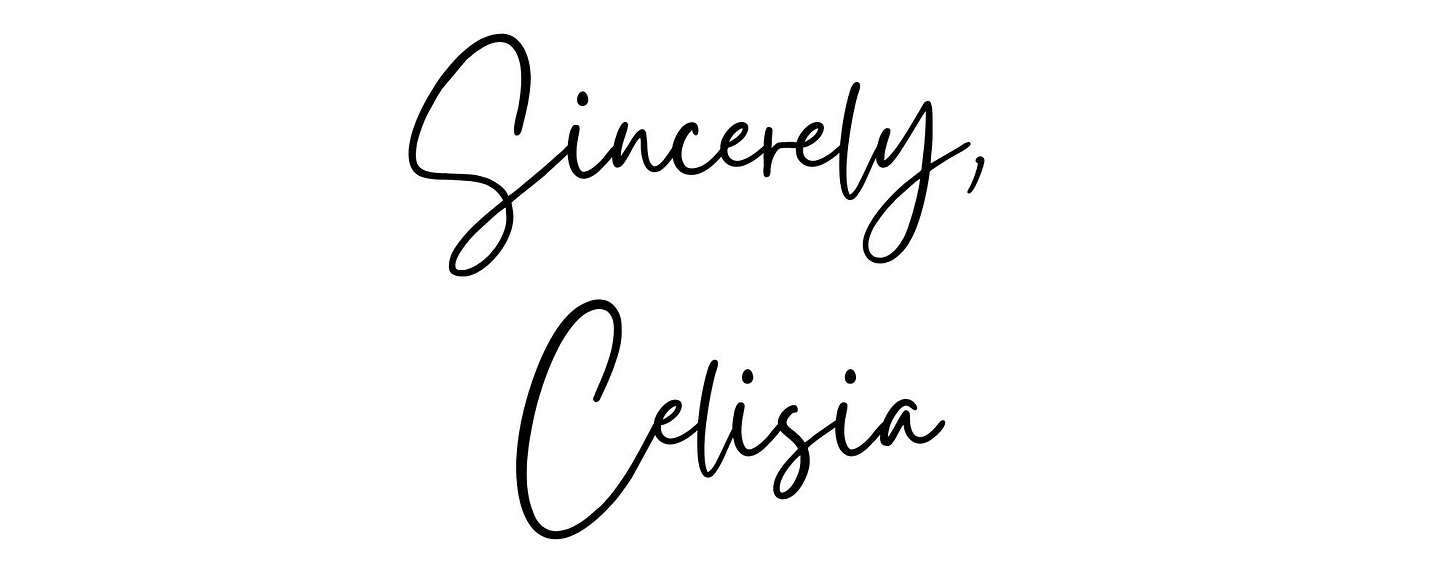My America is Beautiful (Issue #9)
This week’s theme is America, and what it's like to love a place that has such a hard time loving you back.
Hi friends!
A few months ago, I stumbled upon this swipe post on Instagram. Made up of submissions from around the world, respondents shared their unfiltered opinions of the United States. As you might imagine, the feelings were, at times, pretty brutal. Responses like “a never-ending black mirror episode,” “kinda stupid and weird” and “a cult the size of a nation” paint a picture of a country hated globally. And then I read this comment, which really struck me:
I read this and thought: “Hey! I live here! Lots of incredible people live here!”
On the one hand, I do understand. There are endless criticisms to be made about this country, and if you regularly read this Substack, follow me on Instagram, and/or listen to my podcast Truer Crime, you’ll know that I do not hold back in these criticisms. But I also think criticality is an earned thing. Sure, anyone can complain about a place, but I think true criticism actually requires a lot of investment in a community, and deep love for a place and its people.
I think about this James Baldwin quote a lot:
“I love America more than any other country in the world and, exactly for this reason, I insist on the right to criticize her perpetually.”
And I think that’s why sentiments like “time to move to Canada” bother me. America is aggressively imperfect, and harmful to a lot of people globally and within the country itself. But The United States is my home, and for almost three decades, I’ve been surrounded by family, friends, and community leaders working tirelessly to make this country an infinitely better place to live. The hyper-individualist idea of dipping out when convenient feels dismissive of the community care and work so many folks here do. And when the high-horse critique comes from someone in another country, especially one that is rich and powerful, it erases their own country’s harms in favor of an “America is uniquely awful” narrative.
And so in honor of the 4th of July weekend, I wanted to expand on this theme. I wanted to explore answers to a number of questions: Who gets to be patriotic, and what does patriotism mean for Black folks like me? How can we criticize the United States, while simultaneously working to build a better, safer, kinder place for the folks who call this country home? And what does it mean to live on stolen land when many of the folks here were forcibly moved through slavery, or the destruction of their home countries by U.S. imperialism? It’s all incredibly complicated, and I hope you’ll join me in trying to untangle the criticisms from my undying commitment to building something better.
A round-up of things to watch, read, and listen to as you head into the weekend.
The New York Times Magazine: Our democracy’s founding ideals were false when they were written. Black Americans have fought to make them true. by Nikole Hannah-Jones
This article, part of New York Times Magazine’s 1619 project, is one I’ve revisited countless times since its publication in 2019. In it, Hannah-Jones examines the ways Black Americans are often excluded from conversations about U.S. patriotism. Anchoring her analysis in historical examples and connecting them to the present day, Hannah-Jones paints the picture of a country built largely by the Black struggle for freedom. It’s an important framing and a prime example of how a country with horrific flaws is still a place shaped and loved by those who resist.
Podcast: The MLK Tapes
This podcast from Tenderfoot TV and iHeartRadio was one I had to binge in just a few days. Framed like any other true crime show, the podcast “explores rare recordings of eye-witness testimony and new interviews with people who were there to reveal the true story of the plot to kill Dr. King.” It’s an excellent historical deep-dive and a fascinating examination of the ways U.S. history is often changed and obscured to protect positive perceptions of the American government and its actions.
Documentary: I Am Not Your Negro
Originally released in 2016, this film is part documentary and part social critique essay directed by Raoul Peck. The film is based on Remember This House, an unfinished manuscript by James Baldwin. I Am Not Your Negro is presented in a unique way, piecing together excerpts from Baldwin’s manuscript with interviews and other historical footage. The film is narrated by Samuel L. Jackson and is a brilliant exploration of the history of racism and civil rights in the United States. It’s available for streaming now with an Amazon Prime, Hulu, or YouTube Primetime subscription.
The New Yorker: How Owamni Became the Best New Restaurant in the United States by Carolyn Kormann
I loved reading about one of my favorite Minneapolis-based restaurants in a national publication. The piece profiles Sean Sherman, the Oglala Lakota chef, and owner of Owamni, recalling how this restaurant on the banks of the Mississippi became one of the best in the U.S. I loved this article’s examination of what “American” food and culture even is, highlighting how indigenous culture and traditions are an inextricable part of the fabric of this country.
Documentary: 13th
Another documentary from 2016, 13th is just as pertinent today as it was when it was first released. Directed by Ava DuVernay, the documentary borrows its title from the thirteenth amendment of the U.S. Constitution, in which slavery was abolished and involuntary servitude was ended except as a punishment for a crime. The film examines the disproportionate incarceration of Black Americans in the United States, arguing that prison labor is a form of modern racialized slavery. It’s a truly incredible documentary and deeply impacted my political development. If you don’t have a subscription, Netflix has made the whole documentary free to watch on YouTube, which you can check out here.
are you there god? it’s me, dionne (Substack): ; it's me, trying to understand why I live in a place that hates me. by Dionne Sims
Dionne and I went to the same University, and have become internet friends in the last few years. As a Black woman running in similar circles in Minneapolis, I really related to what Dionne shared. Her final paragraph about living in a state so often hostile to Black folks really hits on what I’ve been exploring in today’s newsletter:
“Honestly, why the fuck am I still here.
I mean, sometimes, I don’t know. But I think it’s because I believe, fundamentally and in practice, that Black people belong everywhere. Period. Even this fucking frozen, milquetoast-ass state. I was born here goddammit. My mama still lives here. I know these neighborhoods, these parks, the bus and transit lines, how long it takes to drive to Duluth (two hours flat if you drive fast baybeeee), the best coffee shops, and what summer nights to expect my block to be swarmed by MN United fans. I know so many Black people who feel the same way, whether they were born and raised here or not. Minnesota is my home.”
Exactly.
Time: The Overlooked Black History of Memorial Day by Olivia B. Waxman
On the theme of who gets to claim patriotism, this article illuminates an important historical fact that has been intentionally obscured: the first Memorial Day was led primarily by freed slaves honoring Union soldiers and laying flowers at their graves. But this history was intentionally erased and revised once reconstruction ended and the Lost Cause myth began spreading by Confederate sympathizers. Read the full article for all the details, but knowing this real history has really changed my relationship with this federal holiday.
Playlists to add to your music library.
What is a 4th of July weekend without a killer playlist? Check out my take on American hits at the playlist below!
Things to try + share in the group chat.
Note: Links preceded by an asterisk (*) are affiliate links that allow me to collect a small commission when you purchase something I’ve recommended. That said, I can promise that I’ll only ever share items I truly love. Buying through these links is one way to support me and my small biz. ❤️
A book I will never stop recommending is *Braiding Sweetgrass: Indigenous Wisdom, Scientific Knowledge and the Teaching of Plants by Robin Wall Kimmerer. I first read pieces of this book with Andrew during the early months of the pandemic, and I found it to be incredibly grounding during that time. This line from the description really sums up what I love so much about this collection of essays: “Drawing on her life as an indigenous scientist, a mother, and a woman, Kimmerer shows how other living beings—asters and goldenrod, strawberries and squash, salamanders, algae, and sweetgrass—offer us gifts and lessons, even if we’ve forgotten how to hear their voices.” If you haven’t already read it, make sure to add that to your to-do list!
My friend recommended I try this key lime pie recipe, and it’s just the perfect special treat for any 4th of July get-together. It’s a really simple recipe, great for the summer months, and my friend added extra limes which she said was the perfect tweak.
Another friend of mine has been reading *How the World Is Passed: A Reckoning with the History of Slavery Across America by Clint Smith and highly recommends it. In the book, Smith visits a number of monuments and landmarks linked to slavery across the United States. He seamlessly weaves his experiences at these locations with thorough research, putting history in conversation with the present-day understanding and use of these physical spaces. It’s an incredibly captivating, albeit heavy, read.
And with that, I release you into the 4th of July weekend. No matter how (or if) you’re celebrating, I hope this weekend is kind to you and yours. Until next week!
PS - Maybe Young Celisia Did Know a Thing or Two: Lessons from the Poem I Don't Remember Writing
In the summer of 2009, at just 14 years old, I enrolled in a creative summer program. During the week, we were given old books to up-cycle, redesigning the covers with papier-mâché and filling the pages with our own original writing + art. One day while hunting through old items at my mom’s house I rediscovered the book I’d created. To my surprise, I found a vintage piece of my writing inside–a free verse poem about being Black in America, titled “Everything will be fine in 2009.”








